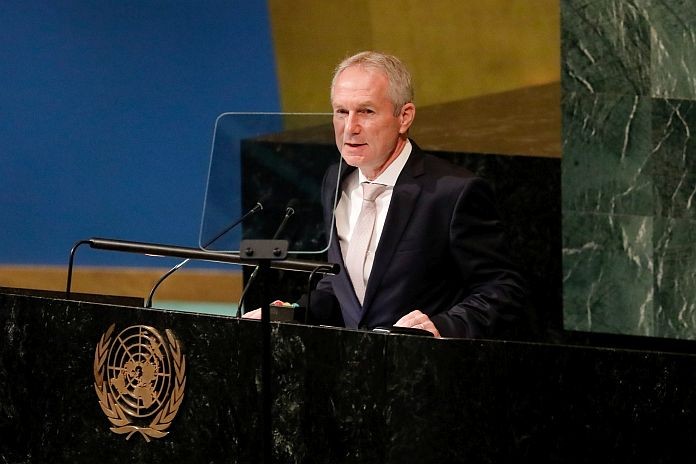NEW YORK, USA – The entire credibility and relevance of the United Nations will be called into question unless the General Assembly finally takes a lead on reforming the Organisation’s most powerful body responsible for peace and security issues, the Security Council.
That’s according to the president of the General Assembly Csaba Kőrösi, who told a plenary meeting on Thursday on expanding the Security Council and making it more equitable, that “interlocking crises” this year, chiefly Russia’s invasion of Ukraine in February, had exposed the Council’s inability to “fully carry out its mandate.”
Veto power
The veto power held by permanent members, China, France, Russia, the United Kingdom and the United States, means that any resolution can be blocked if just one of them decides to use the veto. Ten other countries sit on Council, and are elected to serve two-year terms, on a regional rotating basis.
The Council operates on the basis of one member one vote, and in deciding on “procedural matters”, nine members need to vote in favour for a decision to be adopted. On all other matters an affirmative vote of nine members “including the concurring votes of the permanent members” is necessary.
For a rundown of the Security Council’s powers and ability to stop a war, see our explainer here, published in April.

Growing call for change
“Growing numbers are now demanding its reform”, said Kőrösi.
“During High-Level Week, one-third of world leaders underscored the urgent need to reform the Council – more than double the number in 2021. They are looking to the General Assembly to lead on change.
“We should admit that this is about the credibility and the relevance of the United Nations.”
He told ambassadors that the Assembly needed to decide to go either go through the motions, or “swing into action”.
“You simply must answer this call. The General Assembly is, quite literally, the only UN body with a mandate to seek a solution to the question of Security Council reform. I count on you, the Member States, to drive the transformation now urgently needed.”
Collective step
The Assembly President called for the 193-member body – the most representative in the entire UN system – to take a “collective step”, and support the on-going intergovernmental negotiation process launched 13 years ago, to finally deliver meaningful reform.
“The objective is to find solutions. In a transparent manner. Along a well-designed process”, he told the meeting, saying that he and the co-chairs would provide all support necessary, “in an impartial, objective and open-minded manner.”
Quoting the ancient Chinese philosopher Lao Tzu, who described perseverance as a sign of willpower, he said, “let us persevere.”
Let’s break free of entrenched positions. Let’s go beyond the calculations of distrust and rivalry. Let’s focus on the common good.”





